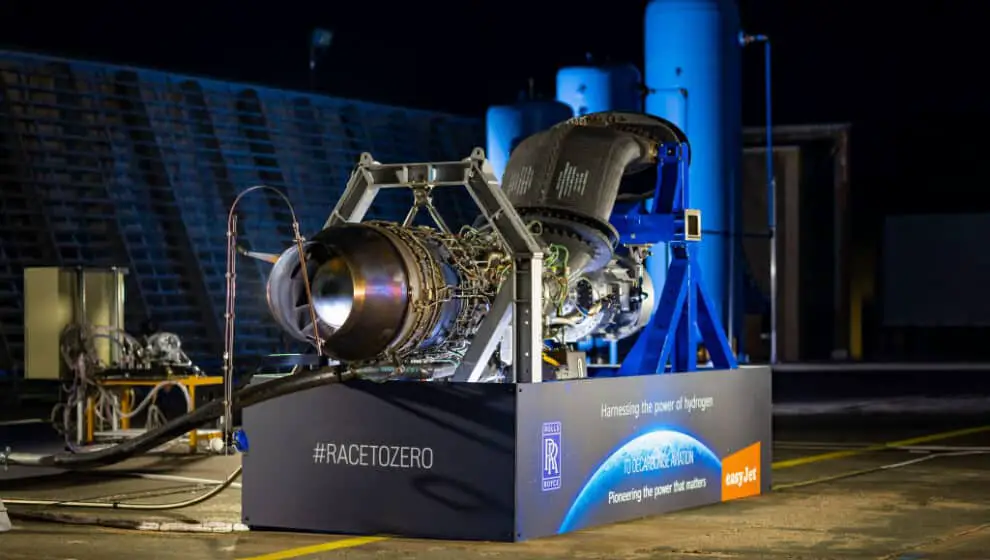A new company is testing hydrogen-based jet engines for regional aircraft to reduce carbon emissions.
Key Details
- As the push for clean energy increases, hydrogen fuel cells are proving to be an effective alternative to fossil fuels.
- Dozens of railroad, automotive, and airline corporations are investigating retrofitted engines that burn hydrogen and create water exhaust.
- Universal Hydrogen is one such company. Speaking with the Magazine of the Society of Women Engineers, this California-based company founded in 2020 is rushing to retrofit regional twin-engine airplanes and put them in service by 2025.
- The company plans to demonstrate the technology in early 2023 with a retrofitted De Havilland Canada Dash 8-300 aircraft.
Why It’s Important
Fossil fuels burned by the airline industry produce 2.4% of the world’s carbon emissions. Universal Hydrogen believes transitioning to green hydrogen could reduce as much as 2.4% of total carbon emissions. It also claims its hydrogen engines will be usable on 99% of existing ATR 72 flight routes, require less maintenance, and will lower costs for airlines.
Multiple industries have already begun testing hydrogen-powered vehicles in the past year. Rolls-Royce is experimenting with its own hydrogen-powered jet engines. Canadian Pacific and other passenger railroads in North America and Europe have begun testing and purchasing hydrogen locomotives.
The use of these alternative fuels is already something that politicians are subsidizing. The Inflation Reduction Act sets aside tax credits for sustainable aviation fuels that produce low emissions. Researcher group Rhodium Group says that these fuels could be an effective means of transitioning away from fossil fuels.
Notable Quote
“Decarbonization is the aviation industry’s existential challenge. Exponential traffic growth has made aviation one of the fastest-growing sources of greenhouse gas emissions, a trend which is unsustainable. We’re building the end-to-end value chain to enable true zero-emissions commercial services as early as 2025, ushering in a new golden era of flight,” CAO Anna Goranson tells the Magazine of the Society of Women Engineers.
